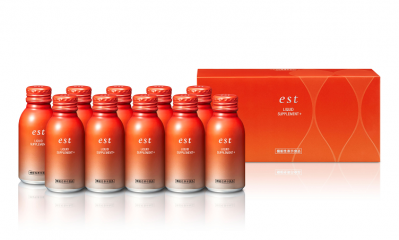Beyond milk thistle: Gencor novel botanical blend improves fatty liver index in 12-week RCT

Fatty liver index is calculated using a formula that involved the waist circumference, body mass index, serum triglyceride, and y-glutamyl-transferase (GGT) of the individuals studied.
In this trial, the botanical blend studied consist of Sphaeranthus Indicus Flower Head and Terminalia Chebula Fruit Extracts. It was formulated by Gencor Pacific and Indian OEM and research firm Laila Pharmaceuticals.
Trademarked CL16049F1 and currently patent pending, the formula contains 95 per cent blend of aqueous extracts of Terminalia Chebula fruit and Sphaeranthus Indicus flower heads in a 2:1 ratio.
In a 12-week double blind, randomised, placebo-controlled trial, the blend was compared with silymarin – also known as milk thistle, as well as placebo.
Ninety male and female subjects between 25 and 60 years old with elevated fatty liver index between 31 and 59 were recruited for the study.
Randomised into three groups, they received either 1) 300mg blend of Sphaeranthus Indicus Flower Head and Terminalia Chebula Fruit Extracts or 2) 320mg of milk thistle, or 3) placebo.
Findings of the study were published in Functional Foods in Health and Disease.
“There has been nothing new for a long time in the liver health space…We looked at the pathogenesis of liver conditions and found that excessive oxidative stress, lipids in the form of triglycerides, and reactive oxygen species can damage liver tissues.
“We then looked at Ayurveda and came across the three fruits used for treating liver problems, namely triphala, Terminalia Chebula, Sphaeranthus Indicus,” R. V. Venkatesh, CEO of Gencor told NutraIngredients-Asia.
Existing studies suggested that Terminalia Chebula was hepato-protective, while Sphaeranthus Indicus improved liver enzymes, lipid profiles, and GI in preclinical animal models.
“They have many antioxidant capability and mechanisms to control lipids and we did in vivo and animal studies to study the right ratio of the two ingredients, before embarking on the human clinical trial, with the primarily objective to find the changes in the fatty liver index,” Venkatesh said.
Fatty liver index changes
Fatty liver index of the group taking the blend was significantly reduced by 13.81 per cent from the baseline and down by 16.08 per cent when compared to the placebo.
This group also saw their fatty liver index reduced from week eight of the study, while in the milk thistle group, significant improvement was only observed at the end of the study.
In the group taking milk thistle, fatty liver index was down by 7.5 per cent from baseline and down by 7.27 per cent as compared to the placebo.
As for the placebo group, their fatty liver index was significantly increased by 7.67 per cent from baseline.
Other findings
The group taking the blend also saw their serum liver enzymes, lipid profile, and oxidative markets significantly improved.
For instance, the level of liver enzymes, including ALT, AST, ALP, and GGT, found in their serum has reduced.
This is important as elevated levels of liver enzymes in the serum are indicators of liver toxicity, also known as hepatotoxicity.
The enzymes are secreted into the circulation due membrane damage in the liver and are considered as markers of liver toxicity in individuals with non-alcoholic fatty liver disease.
Also, as compared to the placebo, there was also a statistically significant increase in the antioxidants superoxide dismutase and glutathione levels.
No major adverse events were observed.
The researchers concluded that the blend was a well-tolerated and effective herbal formulation to reduce fatty liver index, oxidative stress level, and improve liver function and lipid profile in non-alcoholic and overweight subjects.
Upcoming partnerships
In fact, this is the first liver health blend that Gencor has developed to address what it sees as a gap in its product portfolio.
Commercialised only this year after the RCT findings were out, Venkatesh said that the firm has been in talks with brands from India, US, and Asia-Pacific in product development plans.
“There is a huge market for liver health products. There is a growing middle class who are consuming more fast foods and diabetes and cholesterol are getting more common,” he said.
He expects the finished consumer product to be out at the end of this year or early next year.
Source: Functional Foods in Health and Disease
A blend of Sphaeranthus indicus flower head and Terminalia chebula fruit extracts reduces fatty liver and improves liver function in non-alcoholic, overweight adults
DOI: 10.31989/ffhd.v12i7.958
Authors: Rajendra V.







